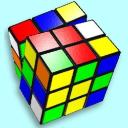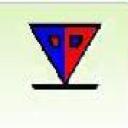Yahoo Answers is shutting down on May 4th, 2021 (Eastern Time) and beginning April 20th, 2021 (Eastern Time) the Yahoo Answers website will be in read-only mode. There will be no changes to other Yahoo properties or services, or your Yahoo account. You can find more information about the Yahoo Answers shutdown and how to download your data on this help page.
Trending News
I have a slightly harder mathematical puzzle for you...?
Find constants a, b, c, and d such that:
4x³ - 3x + √3/2=a * (x-b) * (x-c) * (x-d)
Rules:
#1: Your factors must be exact. No numerical approximations allowed.
#2: Neither the imaginary constant, nor the square root of any negative number may appear in your answer.
#3: Your answer must be simple. Nothing more complicated than a trigonometric function may appear in your answer.
#4: Yes, this problem is solvable.
Wow... you're all going about it so wrong.
Math_kp has solved it most elegantly. Your check for 10 points is in the mail.
11 Answers
- Mein Hoon NaLv 71 decade agoFavorite Answer
let p(x) be given polynomial
we reallize that sqrt(3)/2 = cos pi/6
so 4x^3-3x + cos pi/ 6= 0
or - cos pi/6 =-3x + 4x^3 = cos(3t) if x= cos t
so cos 3t = - cos pi/6 = cos 5pi/6
t = 5pi/18 or cos (2pi/3-5pi/18) = cos(7pi/18)
or cos 17pi/18
so a = 4
b= cos 5pi/18
c= cos 7pi/18
d = cos 17pi/18
as these are zeroes of polynomial
Please check the calculation steps
- Anonymous5 years ago
4 3 3 or 9 2 2
- PuzzlingLv 71 decade ago
4x^3 - 3x + sqrt(3/2) = a * (x-b) * (x-c) * (x-d)
Multiply through on the right hand side:
ax^3 – adx^2 – acx^2 + axcd – abx^2 + abxd + abxc + abcd
Now group your x terms:
ax^3 - (ad + ac + ab)x^2 + (acd + abd + abc)x + abcd
Now match up coefficients and solve...
a = 4
a(b + c + d) = 0
a(bd + bc + cd) = -3
abcd = sqrt(3/2)
a = 4
b + c + d = 0
bc + bd + cd = -3/4
bcd = sqrt(3/2)/4
b(c + d) + cd = -3/4
b(-b) + cd = -3/4
b(-b) + [ sqrt(3/2)/4 ] / b = -3/4
-b^3 + 3/4b + sqrt(3/2)/4 = 0
b is approximately 1.0738817282479558
Yuck -- I've definitely done this the hard way and the wrong way!
- 1 decade ago
doing the multiply operation on the right side gives
4x^3-3x+sqrt(3)/2=ax^3-a(b+c+d)x^2+a(bc+bd+cd)x-abcd
now
a=4 *
0=-a(b+c+d) **
-3=a(bc+bd+cd) ***
-abcd=sqrt(3)/2 ****
then
frm **
-b=c+d
frm ***
b(c+d)+cd=-3/4
-b^2+cd=-3/4
cd=-3/4+b^2
frm ****
bcd=-sqrt(3)/8
b(-3/4+b^2)=-sqrt(3)/8
b^3-3/4b+sqrt(3)/8=0
solve for b
b=-0.9848 or 0.6428 or 0.3428
choos any to find c and d
however the solution for b is done numerically. I cant remebber a formula to solve this equation
- How do you think about the answers? You can sign in to vote the answer.
- Scott RLv 61 decade ago
a = 4
{b,c,d} = {cos(5π/18), cos(17π/18), cos(29π/18)}
= {.642787609, -0.984807753, .342020143}
OR ANY PERMUTATION THEREOF.
{i was planning on typing the answer, submitting, then editing with the derivation, but math_kp beat me to it. His analysis is correct, knowing of course that cos(29π/18) = cos(7π/18)}
Additional proof using casus irreducibilis of the cubic equation:
4x³ - 3x + √3/2 = 0
x³ - (3/4)x + √3/8 = 0
p = -3/4, q = √3/8
r = √(-p^3/27) = 1/8
cosφ = -q/2r = -√3/2
φ = 5π/6
y1 = 2r^(1/3)cos(φ/3) = cos(φ/3) = cos(5π/18)
y2 = 2r^(1/3)cos(φ/3 + 2π/3) = cos(17π/18)
y2 = 2r^(1/3)cos(φ/3 + 4π/3) = cos(29π/18)
are the roots, thus b,c,d, and we know a=4 by inspection.
- Anonymous1 decade ago
Let's figure out the factors for each power of x.
x^3 ---> a=4.
x^2 ---> a(-b-c-d) = 0 ---> b+c+d = 0.
x ---> a(bc+bd+cd) = -3 ---> bc+bd+cd = -3/4.
constant ---> -abcd = sqrt(3)/2 ---> bcd = -sqrt(3)/8.
Solve for b, c, d.
- Anonymous1 decade ago
you said in your answer that you would start by showing that span(S) is closed under addition and scalar multiplication. And you told me how easy that was suppost to be well it is not very easy if I (sorry) don't even know how to do that. Basically I am asking you how would you show that a span(S) is closed under addition and scalar multiplication.
- 1 decade ago
4x³ - 3x + √3/2=a * (x-b) * (x-c) * (x-d)
4x³ - 3x + √3/2=ax-ab (x^2 – xd – xc + cd)
4x³ - 3x + √3/2=ax^3 – adx^2 – acx^2 + axcd – abx^2 + abxd + abxc + abcd
- PretzelsLv 51 decade ago
I get:
a = 4
b = cos(50 deg)
c = -(cos(50 deg) + sqrt(3) * sin(50 deg))/2
d = -(cos(50 deg) - sqrt(3) * sin(50 deg))/2
- modulo_functionLv 71 decade ago
There are methods for solving cubics. I'd check wikipedia.
Here it is:






